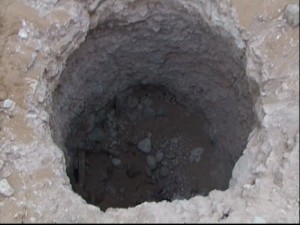
Why it's easy to commit murder in Kenya and get away with it
A high number of mysterious deaths in the country are going unexplained due to poor investigations.
And aware of the government’s dire incapacity to handle homicide cases, a leading forensic expert warns, many criminals could be exploiting the situation and getting away with it.
But that is not all. "There are many innocent people languishing in prison after being wrongly convicted, basically because there was a lapse in investigations,” says Andrew Gachie, the chairman Kenya Association of Clinical Pathologists.
"Equally, there are many murderers walking freely out there who should be in jail. We have to professionalise initial investigations into deaths to reverse this situation.”
Dr Gachie paints a grim picture of how inadequate expertise, lack of forensic science facilities, and a generally sub-standard investigations system have conspired to deny justice to both the living and the dead.
In terms of facilities, the forensic pathologist, who doubles up as a university lecturer, says he has limited confidence in the Government chemist, which he reveals can only handle up to 60 per cent of specimen.
Gachie says while the chemist can be used to detect substances such as alcohol and pesticides, it cannot detect a high percentage of toxic chemicals, meaning specimens have to be taken abroad if the results are to be conclusive.
This, Dr Gachie says, is a very expensive process and only few opt for it. "In case of poisoning, a pathologist cannot categorically say it was poisoning unless there are proper laboratories,” he explains. "Currently, it is even harder to detect the actual cause of death when a prescription drug has been used to poison someone. A lot of homicides go unexplained this way.”
Kenya has just two Government Chemists, one in Nairobi and the other in Mombasa.
The pathologist says this has made it almost impossible for communities in far-flung regions to ever know the exact cause of death of their loved ones in case of foulplay.
"While it should take a maximum of three days to get specimen to the Government Chemist, most specimens from distant regions reach Nairobi or Mombasa when they are already decomposing. This influences results negatively,” Dr Gachie says.
"With no refrigeration facilities for transportation, we have also seen the police often carrying the specimen in polythene bags and under very poor conditions for days. Chain of custody queries also arise due to the long distance involved, sparking questions on integrity. We direly need more labs as well as more advanced specimen transfer facilities,” he states.
Dr Gachie says that with inadequate staff and nearly outdated equipment, it takes too long for the Government Chemist to conclude analysis, with the release of most results taking between six months and one year."By then, most people have usually all forgotten about the case,” he states.
Circumstancial evidence
With Kenya lagging behind in embracing forensic technology, Dr Gachie says his main regret so far is that the multi-billion shilling Anglo Leasing scandal, which was executed during the NARC regime, involved a forensic laboratory.
But while the facilities are in a sorry state, Dr Gachie says the police department has equally played a core role in frustrating murder probes.
"The handling of a crime scene is very vital. But our police offi cers seem convinced that a body provides all answers upon postmortem and thus rarely secure or preserve scenes,” he says. "Bodies are also poorly handled and specimens from the scene are rarely taken; that is very wrong”.
As standard procedure, all scenes of crime have to be immediately cordoned off and thoroughly combed for any evidence. Fingerprints are then taken, vital items secured and samples of spilled substances taken for scientific testing.
Dr Gachie argues that most murders can be unravelled through evidence taken at the scene and says the current situation, including failure to involve forensic experts from the onset, has greatly helped defeat justice.
"Post-mortem and circumstantial evidence should only complement investigations from the scene of crime,” explains the pathologist, who has been involved in post-mortems for majority of the high-profile death cases in the country in recent years.
With poor (if any) investigations at the crime scene, coupled with poor facilities, Dr Gachie tells Standard On Saturday the police heavily rely on circumstantial evidence to prosecute suspects; a scenario he says has put many innocent Kenyans behind bars.
"It is time the police realised how vital a crime scene is. Forensic experts and pathologists should only complement the initial police work,” he says.
In the past, there have been numerous cases of pathologists manipulating post-mortem examination results. The most high profi le was perhaps when former chief government pathologist, the late Dr Jason Kaviti, offi cially claimed that the late former Foreign Affairs Minister Robert Ouko committed suicide.
Dr Gachie opines that cases of coercion to ‘cook’ results have gone down. However, he notes, the releasing of factual results still heavily relies on an individual scientist’s integrity.
In 2002, Gachie, alongside Dr Moses Njue, who was to later become chief government pathologist, were threatened with deregistration after independently releasing postmortem results contrary to those of the government pathologist after a man died in police custody in Nyeri.
"It was a frightening situation with the police trailing us all the time. It was the closest I came to moving into exile,” he recounts.






 0
0 



























Why it's easy to commit murder in Kenya and get away with it
A high number of mysterious deaths in the country are going unexplained due to poor investigations.